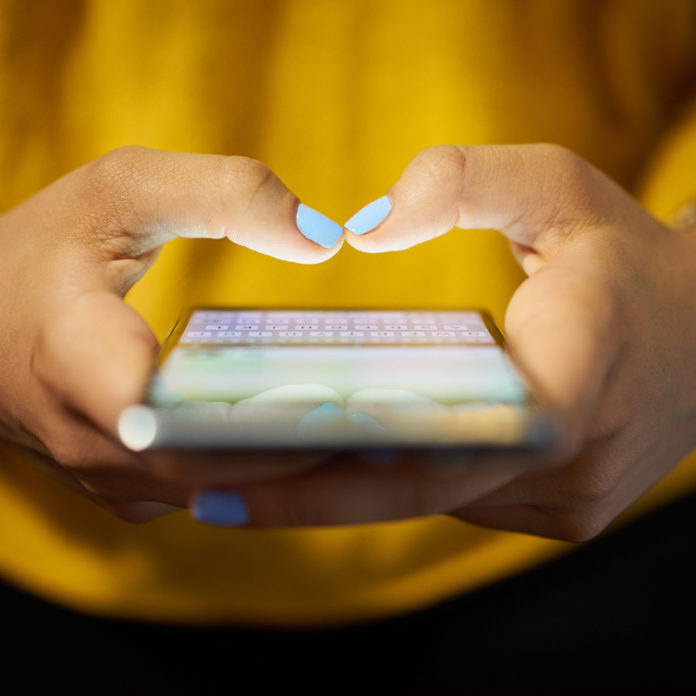
Are you struggling to ignore the sweet buzzing, chiming and ringing of your precious smartphone? Are your loved ones constantly begging you to get out of cyberspace and actually enjoy their company? Have you become a slave to your mobile apps
If you’ve answered “yes” to any or all of these questions, you may be a smartphone addict.
And, while quitting your habit may seem incredibly difficult, James Roberts, the author of “Too Much of a Good Thing: Are You Addicted to Your Smartphone?” suggests that it’s possible if you take the proper steps.
“It’s all about finding your ‘digital sweet spot,’ that magical place where you are still plugged in but have carved out time for the things that really matter,” he says. “You, your relationships and community are the bedrocks of living a happy and meaningful life. They are also the first things that suffer when our lives get out of balance.”
To help you curb your mobile cravings without going cold turkey, Roberts offers the following nine tips:
- Do not use smartphones while driving, period.
“This is by far the easiest tip to implement and also the most important,” says Roberts. “Simply toss your smartphone in the trunk of your car before you leave. It’s out of sight but probably not out of mind, but at least you’re not texting while driving. Don’t get me started on the fallacy of multitasking and hands-free devices. You’re dangerous when you are driving and on the phone – hands-free or not.”
- Create “smartphone-free” areas and times.
“Smartphones should be forbidden in certain places at home and work,” he advises. “For those of you in romantic relationships, no smartphones in the bedroom. The dinner table should also be a smartphone-free zone. No phones within sight or earshot.”
Roberts also notes that significant amounts of productivity can be lost at the office due to smartphone use. To combat this, he suggests designating two or three times throughout the workday to check your phone.
“You will be the rock star of the office as your productivity skyrockets after curbing your cellphone ‘jones’,” he says.
- Don’t buy into the “Hair of the Dog” myth.
Roberts also warns against using apps on your smartphone to—strangely enough—track your smartphone overuse, noting that this itself may cause increased unproductivity.
“I call [this particular idea] ‘Hair of the Dog’ because [it pits] technology against technology. There are a number of smartphone apps that you can use to monitor and control your smartphone use,” he explains. “[Now,] you can set time limits for anything on your smartphone that is particularly distracting or time-consuming.”
- Resist the “poopie” (a selfie taken on the throne).
Is your phone a constant bathroom companion? Cut it out, says Roberts.
“Let’s just make it a rule that smartphones should be banned from the bathroom,” he pleads. “It’s just wrong, and it’s unsanitary to boot.”
- Make use of airplane mode.
“Airplane mode is a nice compromise,” he explains. This feature, which permits your phone to remain turned on without receiving any cellular service or data, “allows you the safety of having your phone with you in case of an emergency but also [lets] you focus on the task at hand with no cellular interruptions.”
- Sign a social contract with your family.
“Social contracts are a great way to change behaviors. Simply write a contract that states explicitly what is acceptable or unacceptable use – and the punishment for such behavior – of your smartphone and enlist your spouse, significant other, and/or kids to be the enforcers. If your kids or spouse are like mine, they will not hesitate to let you know when you are breaking the rules and what the said punishment is for such behavior.”
- Resist using your smartphone as an alarm clock.
“It’s too much of a temptation to check for the latest YouTube cat video before you start your day,” he says, adding that smartphone use should be avoided until you’ve gotten yourself ready for the day.
- Go the “dumb phone” route.
“When it comes down to it, all we really need to be able to do on our phones is make and receive calls – and send texts, if you have teenage daughters. E-mail and social media are nice, but the dumb phone at least keeps us safe (the long-forgotten original purpose for cell phones) and is able to help us connect with those we need to.”
Roberts recommends using your phone without its app- and internet-based capabilities. This, much like using airplane mode, will comfort you when experiencing smartphone withdrawal symptoms, much like “pulling out a stick of gum when you’re trying to quit smoking.”
- Just do it.
“All of the above suggestions will come to naught if you are not totally committed to the cause,” concludes Roberts. “You must convince yourself that curbing your smartphone use is essential to your happiness before you embark on this journey. Without such steely resolve, you will be sucked into the digital vortex that has lured so many of us into an existence where leading a meaningful life has been replaced by the continual pursuit of momentary pleasures.”










